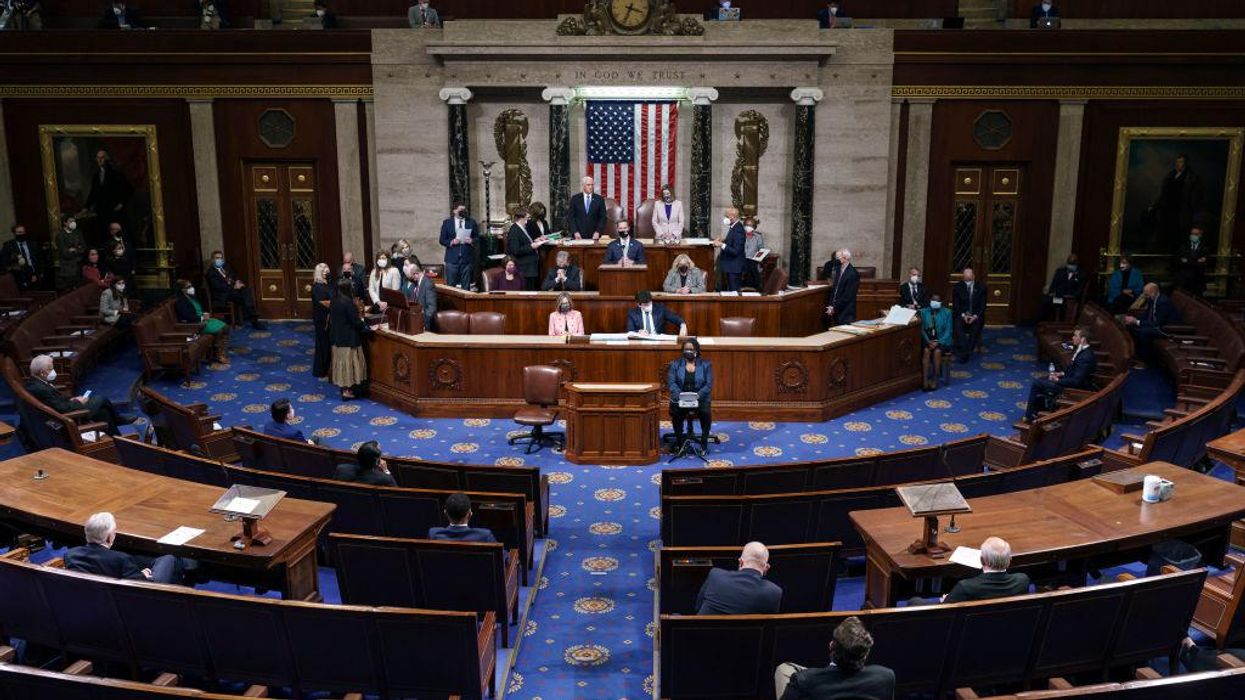Originally published by Divided We Fall.
By Congressman Ralph Norman (R-SC)
As we near the midterm elections, the debate on Congressional term limits resurfaces once again. Many bolster their arguments in favor of limits with the claim that incumbents hold power for too long. Those who argue against term limits claim that incumbents are the most qualified for the job and, having served before, are best able to push legislation through.
Let’s begin with the numbers. According to Ballotpedia, 93% of incumbents running for re-election in 2020 won their races. At the beginning of the 117th Congress, the average amount of prior service for each chamber was about 9 years for House members and 11 years for Senators. Although these averages don’t seem high, a large number of members serve for significantly longer.
The Affliction of Endless Incumbency
While many suggest that incumbents are the ones who should stay in government and not be regulated by term limits, the Constitution states otherwise. Our Founding Fathers never wanted career politicians to overrun the government. Instead, they established representation of the people and by the people. Despite this, the presence of career politicians has increased over time, with some Congress members serving as long as 59 years. An example of this from the 117th Congress was Representative Don Young, who had served a total of 49 years before ultimately passing away in office. In order to prevent members of either chamber from serving close to 50 years, there must be new legislation.
A hypothetical bill, one which would limit members of the House and the Senate to 12 years in service, would drastically change the environment on Capitol Hill. By limiting the tenures of career politicians, there would no longer be such huge gaps in experience between someone who was newly elected and someone who had been in office for an extended time. Members would have more opportunities to serve on committees that they were specifically interested in and have their opinions matter. It would be possible to see more mentoring between members, as legislators sought to maximize their shorter time in office by ensuring that important issues are continuously worked on by many more people.
As it currently stands, there are many members of Congress who hold the belief that they do not need to work with the other political party nor, indeed, anyone whose values differ from theirs. Neither side is to blame for the stark contrast in differing opinions. But rather than working towards understanding each other’s perspective, the unlimited terms that members can be reelected to allow legislators to dismiss opportunities for dialogue and instead, simply wait however long it takes until their side once again has the majority. Term limits would bring a steady flow of new members into Congress — members who would be more inclined to work with a wider range of people, rather than stick to their previous, familiar collaborators.
Term limits would allow more ideas to pass through Congress, as well. The foundation of American democracy is kept firm by representatives in government who truly represent the citizens in their districts. Recognizing their bounded tenures, legislators would shift their focus away from constant re-election and center it back upon being productive in office and carrying out the hopes of their constituents. This way, we would see a move towards bipartisanship within Congress. With more attention paid to the constituents, members would reach across the aisle more often, being less concerned with self-aggrandization and fawning media coverage.
The Physician Must Heal Itself
Robert Yates, the presumed author of Brutus 16, was concerned with the potential disconnect between members of Congress and their constituents back home. When we understand that a position in Congress is not only honorable but also potentially lucrative, the desire to remain in power for as long as possible can actually seem reasonable. That desire to forever be on center stage is precisely why Yates warned that members, “should not be so long in office as to be likely to forget the hand that formed them, or be insensible of their interests. Men long in office are very apt to feel themselves independent [and] to form and pursue interests separate from those who appointed them.”
Today, there is quite a lot of glamour around being a politician. The media loves to pick out the most divisive and well-known political figures to elevate in their headlines. However, Yates understood that the first and foremost role of a public figure needed to be that of a civil servant. Implementing term limits would reduce the capacity of celebrity-seeking demagogues to stir the pot and polarize the public’s opinions. Limits on time in office would assist in keeping politicians more grounded in their work, rather than in their image.
Congress must pass a bill allowing it to set term limits for its members. This can be done without needing to amend the Constitution. The spirit of democracy, the foundation of our great nation, is built upon the recognition by all public officials that their time in power is only momentary. The continuous, collaborative work of government requires the continual transition of power from one person to the next. Legislators must accept that the topics of discussion, issues, and ideals will continue to exist long after any single person’s term in office. America grows stronger when we realize that real progress cannot be made alone.



















Trump & Hegseth gave Mark Kelly a huge 2028 gift